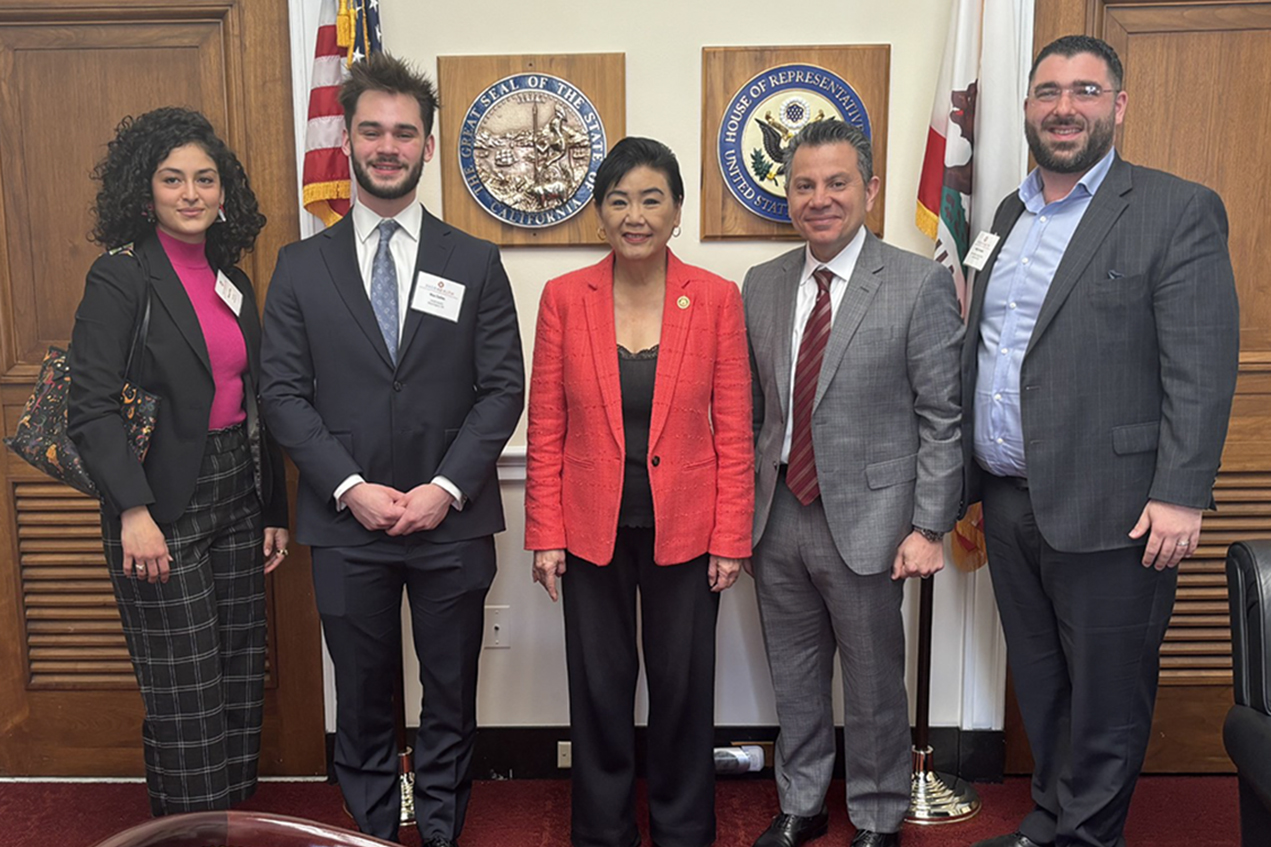Krist Azizian, PharmD, MHA, chief pharmacy officer for Keck Medicine of USC, and Andy Gelejian, PharmD, director of 340B and Pharmacy Enterprise Operations for Keck Medicine, visited Capitol Hill on March 20-21 to advocate for the 340B Drug Pricing Program.
340B refers to the section of the Public Health Service Act that requires pharmaceutical manufacturers participating in Medicaid to sell medications at discounted prices to health care organizations serving a significant number of uninsured and low-income patients.
According to Azizian, studies indicate that 340B participating hospitals provide 77% of hospital care to Medicaid patients and 67% of all uncompensated and unreimbursed care in the US. And Keck Medicine is no exception.
“The program is critical to Keck Medicine’s ability to expand patient access to primary and specialty care — whether through individualized medicine, community benefits, charity care or other forms of support — at zero cost to taxpayers,” Azizian said.
The two-day Capitol Hill event was part of a national effort among health care experts and leaders to make sure the drug pricing program would be protected during federal budget negotiations.
The first day of the event focused on a full-day workshop where leaders from 340B-participating hospitals and health systems across the country caught up on the current political landscape, went over hot topics and prepared to meet with House members representing their communities.
Azizian and Gelejian met with Representative Judy Chu (D-CA, 28th District) and six other California congressional offices to discuss the positive impact that 340B has at Keck Medicine.
The health care landscape is evolving more quickly every year, but new advances in medicine, particularly pharmaceuticals, are often costly enough to trigger disparities in access to treatment. For Keck Medicine, participating in 340B helps to solve that problem.
“Protecting and preserving this program, particularly as we move further into an era of new specialty medications, including lifesaving cell and gene therapies that cost millions, is a key factor to ensure access to care for patients in need of these therapies.”
— Kate Faye


